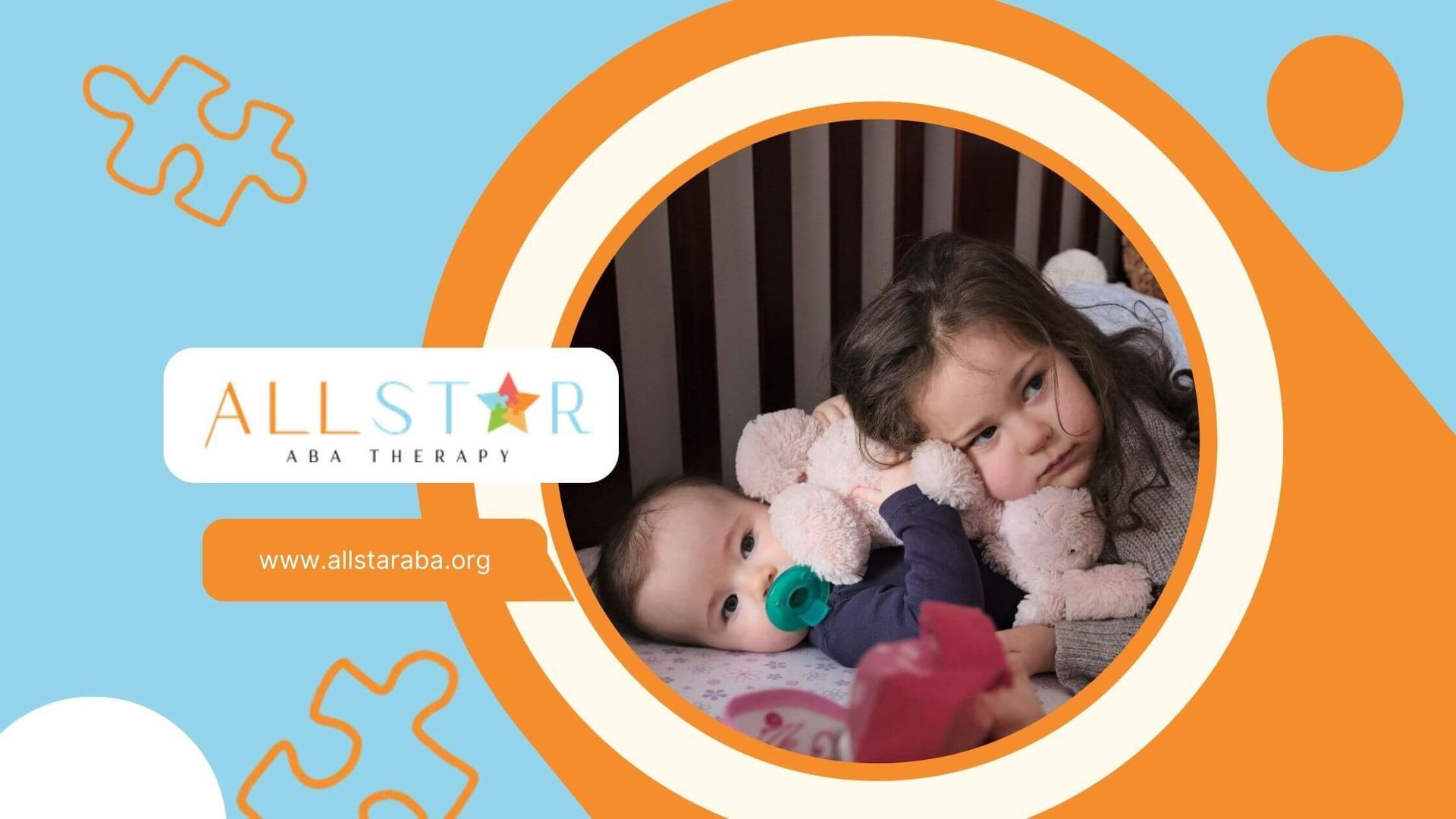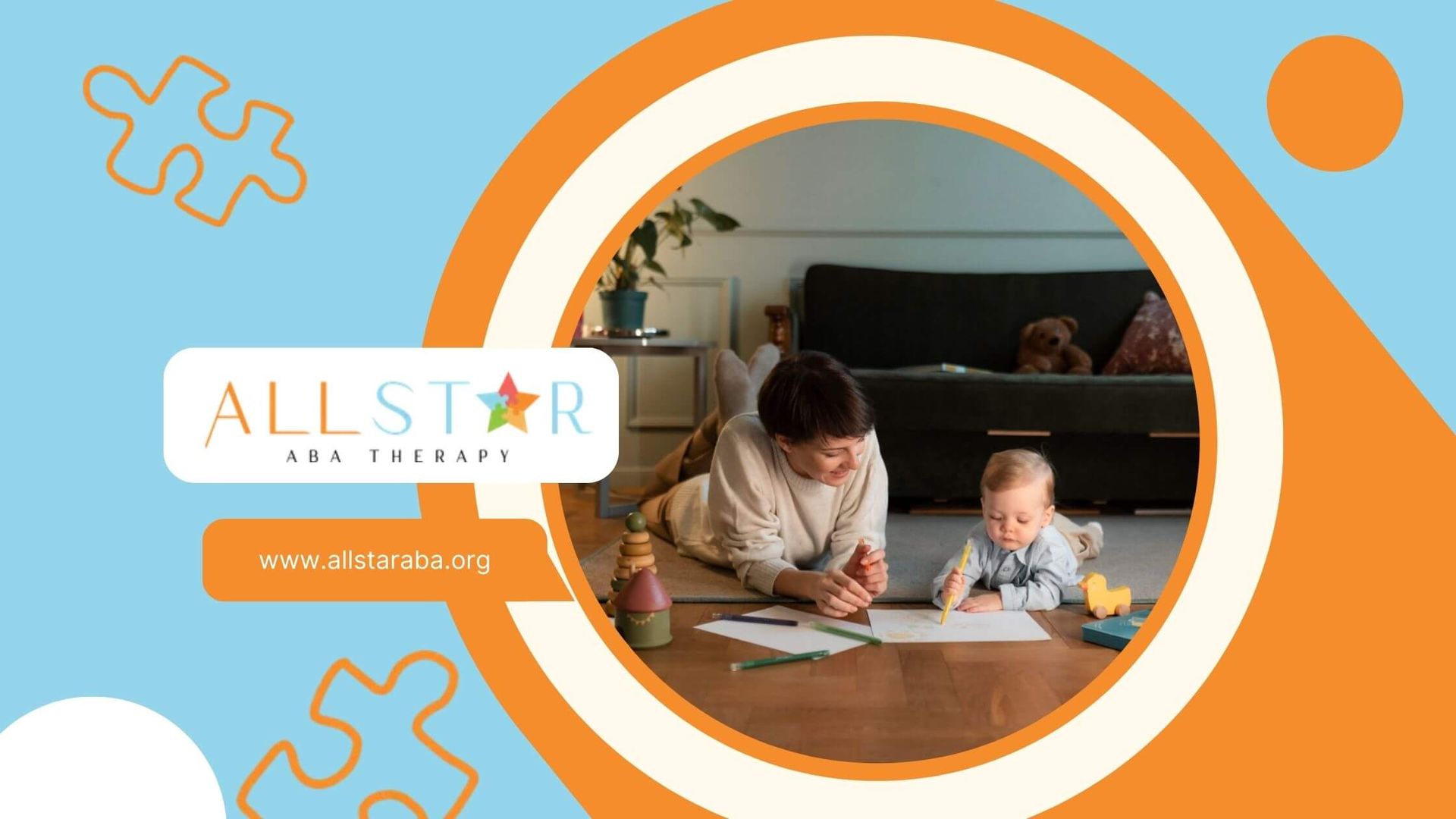New Paragraph
The Ethical Responsibilities of BCBAs
Understanding BCBAs
BCBAs, or Board Certified Behavior Analysts, play a crucial role in the field of applied behavior analysis (ABA) therapy. They are highly trained professionals who possess the necessary skills to assess, design, implement, and supervise behavior analysis programs. Let's take a closer look at what BCBAs are and the qualifications required to become one.
What is a BCBA?
A BCBA is an individual who has obtained certification from the Behavior Analyst Certification Board (BACB). This certification demonstrates their expertise and proficiency in the field of behavior analysis. BCBAs work with individuals of all ages who have various behavioral and developmental challenges.
BCBAs are responsible for conducting assessments to identify behavioral goals and develop comprehensive treatment plans tailored to the needs of each client. They provide ongoing supervision to Registered Behavior Technicians (RBTs) and collaborate with other professionals involved in the client's care. BCBAs also monitor progress, make necessary adjustments to intervention strategies, and collect data to evaluate the effectiveness of the implemented behavioral programs.
Qualifications of a BCBA
To become a BCBA, individuals must meet specific qualifications set by the BACB. These qualifications include:
- Education: BCBAs are required to possess a graduate degree in behavior analysis or a related field. The degree must meet the coursework requirements established by the BACB.
- Supervised Experience: BCBAs must complete a certain number of supervised fieldwork hours, which involve providing behavior analytic services under the supervision of a qualified BCBA or BCBA-D (Board Certified Behavior Analyst-Doctoral). The exact number of supervised hours depends on the level of education attained.
- Passing the BCBA Exam: After meeting the educational and supervised experience requirements, individuals must pass the BCBA certification examination. This rigorous exam assesses their knowledge and competency in behavior analysis principles, ethical considerations, and professional conduct.
By meeting these qualifications, BCBAs demonstrate their commitment to upholding the highest standards in the field of behavior analysis. They are equipped with the knowledge and skills necessary to make a positive impact on the lives of individuals receiving ABA therapy.
Understanding the role and qualifications of BCBAs is essential for individuals seeking therapy services, as it helps them make informed decisions about their treatment options. In the next section, we will explore the role of RBTs and the collaborative relationship between BCBAs and RBTs in providing quality therapy services.
Understanding RBTs
RBTs, or Registered Behavior Technicians, play a crucial role in the field of applied behavior analysis (ABA) therapy. Let's explore what an RBT is and the role they play in therapy services.
What is an RBT?
An RBT is a paraprofessional who works under the supervision of a Board Certified Behavior Analyst (BCBA) to implement behavior analysis interventions and strategies with individuals receiving therapy services. RBTs are trained and certified to provide direct one-on-one therapy to clients. They work with individuals of various ages who may have developmental disabilities, behavioral challenges, or other special needs.
Role of an RBT
RBTs have specific responsibilities and duties that contribute to the success of therapy programs. Some of the key roles of an RBT include:
- Implementing Behavior Intervention Plans (BIPs): RBTs follow the guidance provided by the BCBA to implement behavior intervention strategies outlined in the client's BIP. They work directly with the client to teach new skills, reduce problem behaviors, and promote positive behaviors.
- Collecting Data: RBTs are responsible for collecting accurate and reliable data during therapy sessions. This data helps the BCBA monitor progress, make data-driven decisions, and modify intervention strategies as needed.
- Client Interaction: RBTs build rapport with clients and establish a positive therapeutic relationship. They engage in meaningful interactions, providing support, encouragement, and reinforcement during therapy sessions. RBTs also help clients generalize newly learned skills across different environments.
- Assisting with Assessments: RBTs may assist the BCBA in conducting assessments to gather information about the client's current skill level and areas of need. This information helps in developing individualized treatment plans.
- Collaborating with the BCBA: RBTs maintain ongoing communication and collaboration with the supervising BCBA. They share information about the client's progress, challenges, and any other relevant observations. This collaboration ensures that therapy programs are continually refined and tailored to the client's needs.
- Professional Development: RBTs are committed to ongoing professional development. They participate in training programs, workshops, and supervision sessions to enhance their skills and stay updated with best practices in the field of ABA therapy.
By working closely with BCBAs and following their guidance, RBTs contribute to the overall success of therapy programs. Their dedication and support make a significant impact on the lives of individuals receiving services.
To learn more about the specific job responsibilities of an RBT, you can refer to our article on RBT job responsibilities. For a detailed comparison between the duties of a BCBA and an RBT, check out our article on BCBA vs RBT duties.
BCBA and RBT Collaboration
Collaboration between Board Certified Behavior Analysts (BCBAs) and Registered Behavior Technicians (RBTs) is a fundamental aspect of providing effective therapy services. This section explores the working relationship, as well as the responsibilities and boundaries that exist between BCBAs and RBTs.
Working Relationship
The relationship between BCBAs and RBTs is based on mutual respect and collaboration. BCBAs are responsible for developing and overseeing the treatment plans for clients, while RBTs implement these plans under the supervision of BCBAs. This partnership ensures that therapy services are consistent and aligned with the goals established by the BCBA.
In the working relationship between BCBAs and RBTs, effective communication is essential. BCBAs provide clear instructions and guidance to RBTs, ensuring that they have a comprehensive understanding of the treatment plan and the specific strategies to be implemented. Regular meetings and discussions are encouraged to address any questions or concerns, as well as to provide updates on client progress.
Responsibilities and Boundaries
BCBAs and RBTs each have distinct roles and responsibilities within the therapy process. BCBAs are responsible for conducting assessments, developing treatment plans, and monitoring progress. They provide ongoing supervision and guidance to RBTs, ensuring that the therapy interventions are implemented correctly and effectively.
On the other hand, RBTs are responsible for implementing the treatment plans developed by BCBAs. They work directly with clients, delivering therapy interventions and collecting data on client progress. RBTs maintain close communication with BCBAs, reporting any significant observations or concerns that may arise during therapy sessions.
It is important for both BCBAs and RBTs to understand and respect the boundaries of their respective roles. BCBAs should avoid micromanaging RBTs and instead provide clear expectations and guidelines. RBTs should adhere to the treatment plans and seek guidance from BCBAs when necessary. Collaboration and open communication between the two roles contribute to the overall success of therapy services.
By working together, BCBAs and RBTs create a dynamic and supportive environment that fosters professional growth and ensures the delivery of quality therapy services. Their collaboration allows for the effective implementation of behavior analysis interventions, leading to positive outcomes for clients and their families. For more information on the specific duties and responsibilities of BCBAs and RBTs, refer to our articles on RBT job responsibilities and BCBA case management.
Ethical Responsibilities of BCBAs
BCBAs (Board Certified Behavior Analysts) play a critical role in the field of applied behavior analysis (ABA) and have important ethical responsibilities to uphold. These responsibilities ensure the integrity of the profession and the well-being of clients. In this section, we will explore two key ethical responsibilities of BCBAs: the Code of Ethics and confidentiality and privacy.
Code of Ethics
BCBAs adhere to a Code of Ethics that outlines the professional standards and ethical guidelines they must follow. This code, established by the Behavior Analyst Certification Board (BACB), provides a framework for ethical decision-making and professional conduct. It encompasses various areas such as professional competence, integrity, and social responsibility.
The Code of Ethics emphasizes the importance of maintaining competence in the field. BCBAs are expected to keep their knowledge and skills up to date through continued learning and professional development. They should only provide services and use techniques within the scope of their training and expertise.
Integrity is another fundamental principle of the Code of Ethics. BCBAs are expected to be honest, truthful, and transparent in their professional interactions. They must accurately represent their qualifications, experience, and the potential outcomes of their interventions.
Furthermore, BCBAs have a responsibility to promote the welfare and well-being of their clients. This includes treating clients with respect, dignity, and cultural sensitivity. BCBAs must obtain informed consent from clients or their legal guardians before initiating any services and ensure that the services provided are in the best interest of the client.
Confidentiality and Privacy
Maintaining confidentiality and privacy is a crucial ethical responsibility of BCBAs. They must respect and protect the privacy of their clients and ensure that all personal information is kept confidential. This includes any information shared during assessments, treatment planning, and therapy sessions.
BCBAs should obtain written consent from clients or their legal guardians before disclosing any client information to third parties, unless required by law or when there is a clear and imminent risk of harm. They must also inform clients about the limits of confidentiality and any circumstances that may require disclosure.
To ensure compliance with confidentiality and privacy standards, BCBAs should establish secure systems for storing client records and information. They should also educate their clients and the team members they work with, such as RBTs (Registered Behavior Technicians), on the importance of confidentiality and privacy.
By upholding the Code of Ethics and prioritizing confidentiality and privacy, BCBAs demonstrate their commitment to providing ethical and responsible behavior analysis services. These ethical responsibilities contribute to maintaining trust, professionalism, and the overall well-being of clients in the field of ABA.
Ethical Responsibilities of RBTs
RBTs play a crucial role in providing therapy services under the supervision and guidance of BCBAs. As professionals in the field of Applied Behavior Analysis (ABA), RBTs have ethical responsibilities that guide their conduct and ensure the well-being of their clients.
Professional Conduct
Maintaining professional conduct is an essential ethical responsibility for RBTs. This includes adhering to the guidelines outlined in the Behavior Analyst Certification Board (BACB) Professional and Ethical Compliance Code for Behavior Analysts. RBTs should demonstrate professionalism in their interactions with clients, their families, and other professionals.
Key aspects of professional conduct for RBTs include:
- Respect and Integrity: RBTs should treat clients and their families with respect, dignity, and cultural sensitivity. They should uphold the highest standards of integrity in their professional relationships and avoid conflicts of interest.
- Professional Boundaries: RBTs must establish and maintain appropriate professional boundaries with their clients. This means avoiding dual relationships that may compromise the therapeutic relationship and maintaining confidentiality.
- Continuous Professional Development: RBTs should engage in ongoing professional development to enhance their knowledge and skills. This may involve attending training workshops, conferences, or pursuing further education in the field of ABA.
Client Welfare
The welfare and well-being of clients are of utmost importance for RBTs. Ensuring the safety and protection of clients is a primary ethical responsibility that guides their practice.
RBTs must:
- Follow Treatment Plans: RBTs are responsible for implementing the treatment plans developed by the supervising BCBA. They should follow the instructions and interventions outlined in the plan, ensuring fidelity and consistency in service delivery.
- Ensure Client Safety: RBTs must maintain a safe environment for their clients during therapy sessions. This includes being aware of potential hazards, implementing appropriate safety measures, and responding promptly to any emergencies or safety concerns.
- Monitor Client Progress: RBTs should collect data and document client progress accurately and objectively. This information is essential for evaluating the effectiveness of interventions and making necessary adjustments to the treatment plan.
By upholding these ethical responsibilities, RBTs contribute to the overall quality of therapy services and the well-being of their clients. Their professional conduct and dedication to client welfare are integral to the collaborative efforts between BCBAs and RBTs in providing effective and ethical ABA therapy. For a comparison of the duties and responsibilities of BCBAs and RBTs, refer to our article on BCBA vs RBT duties.
Importance of BCBAs and RBTs
BCBAs (Board Certified Behavior Analysts) and RBTs (Registered Behavior Technicians) play vital roles in therapy services, working together to ensure quality care for individuals in need. Their collaboration has a significant impact on therapy services, ultimately leading to positive outcomes for clients.
Impact on Therapy Services
The involvement of BCBAs and RBTs has a profound impact on therapy services. BCBAs bring their expertise in behavior analysis and provide comprehensive assessment, intervention planning, and supervision for RBTs. Through their extensive training and experience, BCBAs are equipped to conduct functional behavior assessments, develop behavior intervention plans, and monitor progress. They play a critical role in overseeing the overall treatment process.
RBTs, on the other hand, work directly with clients under the supervision and guidance of BCBAs. They implement behavior plans, collect data, and assist with skill acquisition and behavior reduction programs. RBTs provide the necessary support and consistency in therapy sessions, ensuring that interventions are carried out effectively and accurately. Their direct involvement in client sessions promotes skill development and behavior change.
The collaborative efforts of BCBAs and RBTs allow for a comprehensive and holistic approach to therapy services. By working together, they address the unique needs of each client, tailoring interventions to promote progress and enhance overall well-being.
Ensuring Quality Care
The combination of BCBAs and RBTs in therapy services is crucial for ensuring quality care. BCBAs bring their expertise, knowledge, and adherence to ethical guidelines to the table. They are responsible for developing and implementing evidence-based interventions, continuously monitoring progress, and making data-driven decisions to guide treatment. BCBAs also provide ongoing supervision and training to RBTs, ensuring that they are equipped with the necessary skills and knowledge to implement interventions.
RBTs, under the guidance of BCBAs, play a crucial role in delivering quality care to clients. They provide direct support and implement interventions with fidelity, ensuring consistency and accuracy in treatment implementation. RBTs maintain detailed records, collect data, and communicate progress to the BCBA, facilitating the continuous evaluation and adjustment of treatment plans. Their dedication and commitment to the clients contribute significantly to the overall quality of care.
By upholding the ethical responsibilities and professional standards set forth by their respective boards, BCBAs and RBTs ensure that clients receive the highest level of care. Their combined efforts, knowledge, and commitment work together to create a positive and impactful therapeutic experience.
The collaboration between BCBAs and RBTs is essential in therapy services. Their roles, responsibilities, and mutual support contribute to the overall success and effectiveness of interventions. Together, they uphold excellence and make a meaningful difference in the lives of individuals seeking therapy services.
Need Support?
We're Here to Help!
Our experienced team is ready to assist you. Reach out today to discuss how we can support your child's development and well-being.
Get started with expert ABA therapy today.








